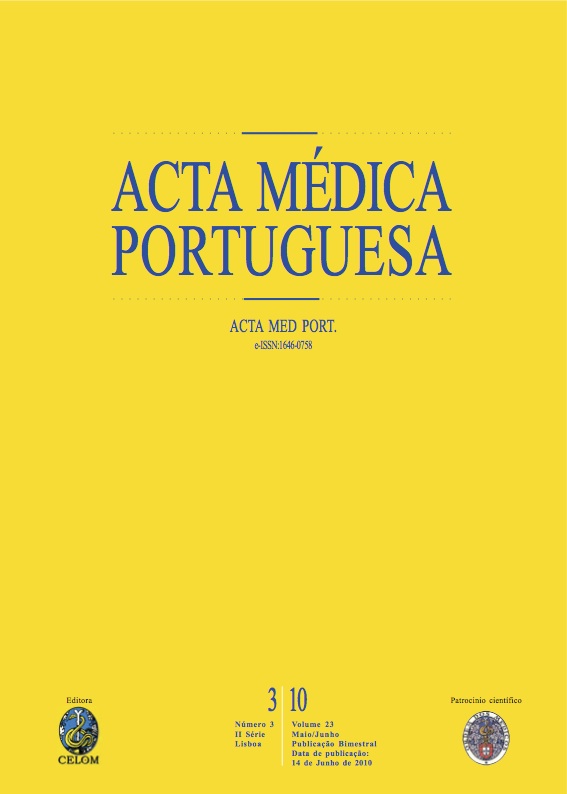Obesidade em idade pré-escolar - cedo demais para pesar demais!
DOI:
https://doi.org/10.20344/amp.644Resumo
Portugal is at the second position of childhood obesity prevalence, among the 7-9-year-old children. There are few national studies about obesity in pre-school age, although international data point to the increase of overweigh in this age, and the beginning of obesity by the age of 3 years. The knowledge of risk factors is determinant to establish preventive measures. Objectives: To identify the prevalence of overweight and obesity among pre-schoolers attending Evora's public kindergartens, recognise risk factors and access parents' perception of children's nutritional status. Methods: Written questionnaire applied to the parents and anthropometric measure of children. Results: Among the 314 participants (176%, 137&), 275 were evaluated for anthropometric parameters. Prevalence of overweight was 25,4% and 11,6% had obesity. The 3-year-old group was the highest affected, with 33,3% overweight. The risk factors identified were female gender (odds ratio 1,8) and prematurity (odds ratio 4,8). There was no statistical difference between normal weight and overweight groups in what concerned birth weight, number of kilos increased during pregnancy, length of breast feeding, age of the beginning of solid foods, actual diet, exercise and sedentary behaviour. The presence of at least one parent with excess weight was identified in 65,4% of the sample, without relation to nutritional status. Eighty seven per cent of the parents of overweight children identify them as being equal to or under the average weight for age, in a scale of adapted figures. Conclusions: The overweight prevalence detected in this study is above most countries, only surpassed by North America. Parental obesity and their neglect of overweight children might contribute to a lower compliance to preventive strategies. Therefore we suggest that more reinforce must be given to the preventive community measures already started.Downloads
Downloads
Como Citar
Edição
Secção
Licença
Todos os artigos publicados na AMP são de acesso aberto e cumprem os requisitos das agências de financiamento ou instituições académicas. Relativamente à utilização por terceiros a AMP rege-se pelos termos da licença Creative Commons ‘Atribuição – Uso Não-Comercial – (CC-BY-NC)’.
É da responsabilidade do autor obter permissão para reproduzir figuras, tabelas, etc., de outras publicações. Após a aceitação de um artigo, os autores serão convidados a preencher uma “Declaração de Responsabilidade Autoral e Partilha de Direitos de Autor “(http://www.actamedicaportuguesa.com/info/AMP-NormasPublicacao.pdf) e a “Declaração de Potenciais Conflitos de Interesse” (http://www.icmje.org/conflicts-of-interest) do ICMJE. Será enviado um e-mail ao autor correspondente, confirmando a receção do manuscrito.
Após a publicação, os autores ficam autorizados a disponibilizar os seus artigos em repositórios das suas instituições de origem, desde que mencionem sempre onde foram publicados e de acordo com a licença Creative Commons









